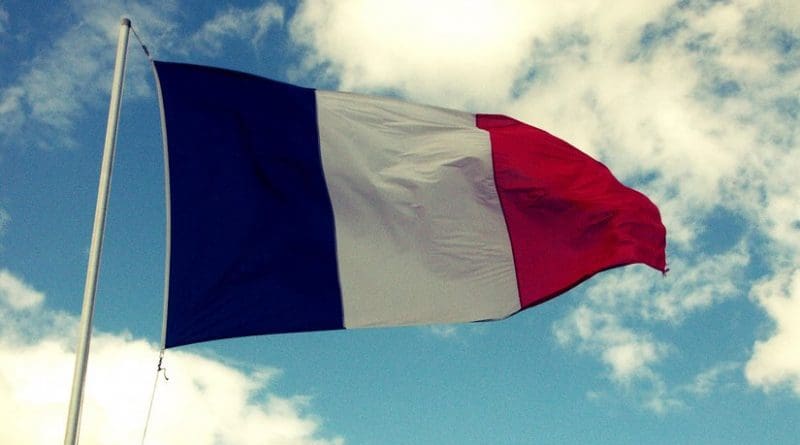France: A Rejection Of Nationalism, But A Nation More Divided Than Ever – Analysis
By Arab News
By Rupert Wright
After probably the most personal and vitriolic campaign in its history, the French presidential election closed Sunday night with exit polls predicting a win for Emmanuel Macron, the “teacher’s pet” from Amiens, with about 65 percent of the vote.
Not even a last-minute hacking scandal of his campaign e-mails, blamed on the Russians, was able to derail him. Marine Le Pen, the possessor of the most toxic name in European politics, is set to emulate her father, Jean Marie Le Pen, by finishing second.
However, while Le Pen père won just 19 percent of the vote 15 years ago, his daughter appears to have had a better showing, with about 34 percent of the vote. This will give hope to her supporters, and leave the country more divided than ever.
- Related Article: France Rejects Far-Right Le Pen, Elects Macron To Heal ‘Divisions’
Like Brexit and Donald Trump last year, a vote for Le Pen was a vote to curb immigration, roll back on globalization, and possibly even leave the EU. A vote for Macron, on the other hand, was for keeping the status quo, even if he was disguised as a new and dynamic force.
This is perhaps one of those election results that does not please anybody, just as neither candidate was to everybody’s taste. Fewer than 65 percent of the electorate voted, with many preferring to abstain rather than cast a vote. But for those who did vote, Macron was the less noxious option. As one voter told Le Monde: “Some people are saying it’s a choice between the plague and cholera… I’d say it’s more like the plague or chicken pox. I don’t like Macron, but I fear Le Pen.”
- Related Article: France: Macron Wins Presidency
The French, for all their talk of revolution, are a deeply conservative nation. They fear change more than anything else. But in the rural areas of the south, and the depressed northeast, the rhetoric of Le Pen resonated with voters. They have tired of the European dream, resent the immigrants from the Maghreb, and fear that their country is losing its identity.
“We are supposed to be a Catholic country,” Jean-Pierre, an electrician, told me. “But now every major city has a mosque and half the population are veiled.”
Robert Menard, the mayor of Béziers, a city of 70,000 half an hour from the Mediterranean with a large Muslim population, was elected partly with the support of the Front National, Marine Le Pen’s party. He echoes this view, even suggesting that the burkini should be banned.
“This is a Christian country,” he told me. “If we go to the Middle East, we must abide by the rules and customs of that country. I think people who come to live here should do likewise.”
He would like to see strict limits on immigrants — because he does not think that France can afford to welcome them — and a rejection of the quotas that Brussels wants to impose, along with strengthened border controls, and a review of France’s immigration policy.
None of this will happen now, but while Macron looks set to get the keys to the Elysée Palace, the country’s youngest ever elected leader, his problems are only just beginning.
President Macron must find a way to revive a sluggish economy, with unemployment among the youth hitting 25 percent in some areas, while reducing the number of bureaucrats and slashing red tape. He needs to encourage greater integration among France’s immigrant community, while showing the rest of the population that he is not soft on the terrorist threat that some of them pose. And he must achieve this without a single member of Parliament.
It is often said by political analysts that the French president has unparalleled powers, greater than their counterpart in the US. They get to choose who is prime minister, for example. But how will that work given that until parliamentary elections in June, he is his party’s only elected official?
It remains to be seen how virulent a dose of chicken pox this proves to be.

